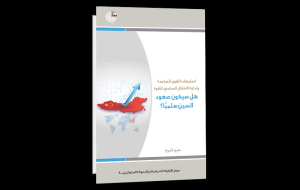In 1991, having emerged triumphant from the Cold War, America and the free world countries experienced a wave of euphoria. The classic expression of the era’s geopolitical mood was Francis Fukuyama’s book The End of History and the Last Man, which reported that the conquest of the world by democracy and free market capitalism was irresistible and permanent.
China did not appear to be an exception. It was still ruled by the Chinese Communist Party (CCP), and thus continued to call itself a communist country. But the CCP was led by the pragmatic Deng Xiaoping, who famously commented that “it matters not whether a cat is blackor white, so long as it catches mice”. True, Deng had ordered the massacre of hundreds andperhaps thousands of students and workers demonstrating for democracy in Beijing’s TiananmenSquare and throughout the country on June 4–5, 1989. (An estimate from the US embassy inBeijing put the number of deaths at 500 to 2600. Most casualties were reported to have occurred on Changan Avenue, outside the square.) But he assured global leaders that this wasjust domestic politics, and it should in no way deter them from taking advantage of China’sultra-low wages by using it as a production location from which to export to world marketsand to sell into the growing China market.
One of the first to do so was Robert Galvin, the CEO and chairman of Motorola and theson of its founder. He once told me that the Tiananmen Square incident had created a great opportunity for his company. The Chinese, he said, desperately needed investment andtechnology, and because of all the bad press they were willing to make significantconcessions to
attract foreign companies. He hurried to Beijing, where he offered to put Motorola factories inChina on the condition that Motorola retain 100 percent ownership of the business. StandardChinese policy had been to require joint ventures with Chinese partners, but as Galvin hadanticipated, Deng and company made an exception for Motorola, which hastened to begin offshoring its production from the United States to China. Other US and global CEOssoon followed suit.
Nor was there any pushback from Western governments—quite the opposite. PresidentWilliam Clinton called for “engagement”. Regarding China’s possible censorship of the thennew internet, Clinton scoffed “that would be like trying to nail Jell-O to the wall”. In this he wassupported by US trade representative Charlene Barshefsky, who said it was a “no brainer” thatthe internet would lead to China’s liberalization. “The government is not going to be able tocontrol content. It is not going to be able to control access. The Net is going to have thesingle most profound change on China, engendering tremendous pressure on the Chinese leadership.”
In 2001, the US government backed China’s entrance into the World Trade Organization(WTO). A key argument in favor of this move was that the greatest potential danger to theworld would not be a rapidly developing China but rather an economically failing China. Thiskind of assessment was often followed by another, expressed by former deputy secretary of state Robert Zoellick, who asserted that the United States and its allies wanted China to be “a responsible stakeholder in the global system”. Most experts expected the WTO rules and procedures to liberalize China and make it “a responsible stakeholder in the liberal world order”. But the experts made the wrong bet. China today is liberalizing neither economically nor politically but, if anything, becoming more authoritarian and mercantilist.
In this book, notably free of partisan posturing and inflammatory rhetoric, renowned globalization and Asia expert Clyde Prestowitz describes the key challenges posed by China and the strategies America and the Free World must adopt to meet them. He argues that these must be more sophisticated and more comprehensive than a narrowly targeted trade war. Rather, he urges strategies that the United States and its allies can use unilaterally without contravening international or domestic law.
Clyde Prestowitz: Founder and president of the Economic Strategy Institute. He previously served as advisor to the US Presidents Ronald Reagan, George W. Bush, Bill Clinton and Barack Obama. Additionally, Prestowitz has served on the Advisory Boards of Indonesia’s Center for International Studies and of Israel’s Ministry of Industry and Labor.
Author: Clyde Prestowitz
Publisher: Emirates Center for Strategic Studies and Research
Date of Publication: 2024













